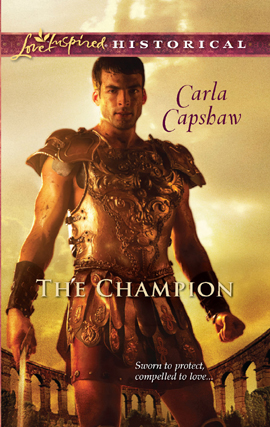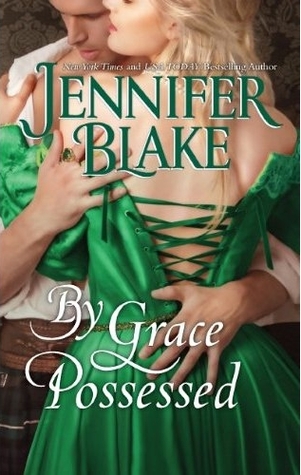Review: The Champion
From what I could tell from reading the book, Carla Capshaw’s The Champion seems to be the third book in a series, with characters from previous books featuring heavily in this one. It would have been nice if the netGalley blurb – or the author’s website – indicated such, so that I would have been warned of that beforehand.
Tiberia the Younger is in desperate need of help; with her hoydenish reputation and string of broken proposals, her father Tiberius has decided that no decent man will have her, and that the best way for Tibi to give some honour back to the family is to join the priesthood, despite her lack of religious leaning. Having no desire to become a temple priestess Tibi runs away from home, seeking her cousin Pelonia, who should be newly arrived in Rome with her former-gladiator husband.
Unfortunately, Tibi arrives at the home of famed gladiator Alexius of Iolcos, Pelonia’s host, to find that her cousins are not expected to arrive for several more days. While Alexius offers to protect Tibi from her father, at least until Pelonia arrives, the undeniable attraction between them almost seems more dangerous than Tiberius’ inevitable wrath…
Like many books that are part of a series, the author relies on you having read the earlier books; the relationships between Tibi and Alexius and the various other characters were passed over only briefly, and I didn’t get a real understanding of who everyone was until right near the end.
There were a few things, like the prospect of Tibi being sent to a temple, that felt insufficiently explained: both Tibi and Alexius reacted with horror at the revelation of which temple she would be sent to, but the reason for this horror was never revealed to the reader. Ancient Rome is not really my area of historical preference, but I’m familiar with all of the major Roman deities and many of the minor ones, and the name didn’t have any significance at all. It’s possible I’m missing a blatantly obvious reference, but if so, I don’t care enough to assign myself homework.
The official blurb didn’t fit too accurately with the actual content of the story. The vast majority of the time is spent with Tibi and Alexius being very firmly Just Friends, with many long glances and wistful sighs but no hanky-panky or even stolen kisses. Like so many heroines, Tibi is supposedly oblivious to her allegedly breathtaking beauty, and has no idea that a man might find her attractive. Maybe this trope was cute the first hundred times. And the one with the hero deciding he stands no chance with the girl because he’s “not good enough”, etc.
The end was rather anticlimactic, after the spectre of Tibi’s father’s wrath hanging over their heads, it reached a small crescendo and then… didn’t really go anywhere. The last-minute drama right at the end seemed utterly ridiculous and unnecessary, and then any repercussions from that, social, familial or otherwise, were completely skipped over. Tibi’s relationship with her sister was never really settled one way or another on-screen, and Tibi’s father received none of the comeuppance he richly deserved.
I liked the background of Ancient Rome, and the rather unique (in my experience, anyway) setting in and around a gladiator school. I’m not sure how historically accurate all of the information was, let alone Tibi’s archery skills, but it was fairly convincing and I enjoyed seeing Tibi gain some self-confidence and grow through the story.
Unique setting aside, the underlying story was generic rake-meets-girl, misunderstandings-ensue romance with a strong Christian flavour, particularly towards the end of the book. Again, something I wasn’t really expecting when reading a romance set in Ancient Rome. But I suppose it’s different strokes for different folks, and Christianity is not really one of mine. Perhaps if it had been less blatantly evangelical ‘oh look God does miracles’ at the end here.






 the second book is about Garrick’s half-brother Ethan, who appeared only briefly in Mistress and who I have little interest in reading about.
the second book is about Garrick’s half-brother Ethan, who appeared only briefly in Mistress and who I have little interest in reading about.











